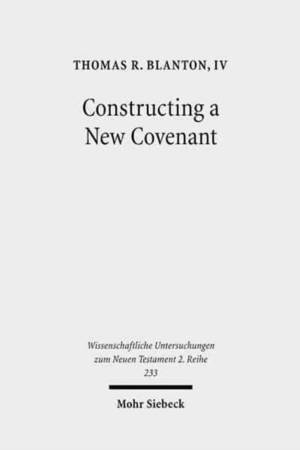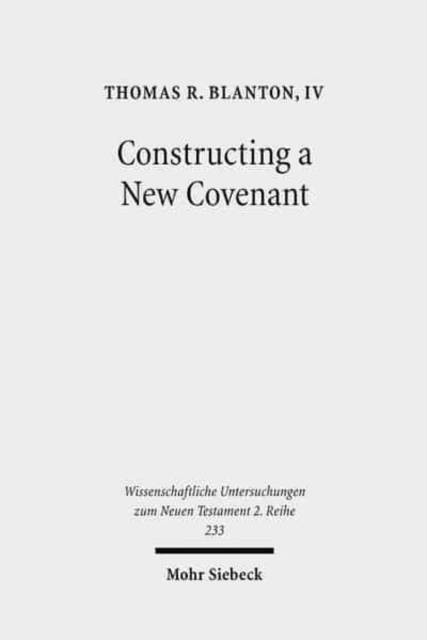
- Afhalen na 1 uur in een winkel met voorraad
- Gratis thuislevering in België vanaf € 30
- Ruim aanbod met 7 miljoen producten
- Afhalen na 1 uur in een winkel met voorraad
- Gratis thuislevering in België vanaf € 30
- Ruim aanbod met 7 miljoen producten
Zoeken
Constructing a New Covenant
Discursive Strategies in the Damascus Document and Second Corinthians
Thomas R Blanton
€ 77,95
+ 155 punten
Omschrijving
Thomas R. Blanton, IV seeks to reconstruct the social contexts in which two discourses that involve the new covenant were written, and to which they responded. He first examines the Damascus Document from among the Dead Sea scrolls, arguing that this discourse was crafted in order to delegitimate Hasmonean claims to the high priesthood and Pharisaic claims to authority in legal interpretation. In response to the claims and practices advocated by these rival groups, the Essene sect crafted a discourse which construed the new covenant as one that supported Essene claims that they were the legitimate bearers of high priestly authority and the divinely authorized interpreters of the Torah. In the second half of the book, the author argues that Paul crafted his discourse on the new covenant in opposition to an ideology that was espoused by a rival group of missionaries, according to which, under the conditions of the new covenant, the spirit of God was thought to empower individuals to follow the Torah with perfect obedience. Paul crafted his own discourse in opposition to this view, positing that law and spirit were antithetical terms. By arguing in this way, he attempted to bolster the credibility of his own law-free message.
Specificaties
Betrokkenen
- Auteur(s):
- Uitgeverij:
Inhoud
- Aantal bladzijden:
- 271
- Taal:
- Engels
- Reeks:
- Reeksnummer:
- nr. 233
Eigenschappen
- Productcode (EAN):
- 9783161492075
- Verschijningsdatum:
- 1/11/2007
- Uitvoering:
- Paperback
- Formaat:
- Trade paperback (VS)
- Afmetingen:
- 153 mm x 229 mm
- Gewicht:
- 452 g

Alleen bij Standaard Boekhandel
+ 155 punten op je klantenkaart van Standaard Boekhandel
Beoordelingen
We publiceren alleen reviews die voldoen aan de voorwaarden voor reviews. Bekijk onze voorwaarden voor reviews.











